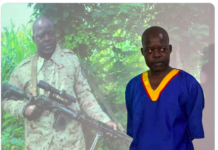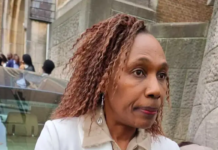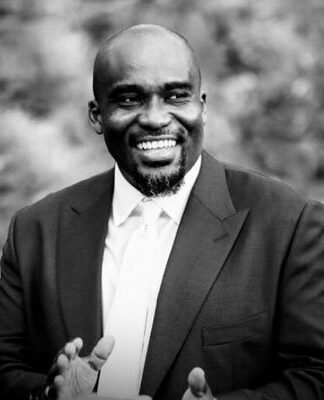Alexandria, VA. With a mission to inspire an interest in science and technology leadership and innovation among the nearly 2 billion youth of the world, FIRST Global (www.first.global) is launching the world’s first international robot olympics for high school students, with nearly 160 nations each committed to sending one team to represent their country. It is through science, technology, engineering, and mathematics that the growing minds of tomorrow can address the world’s most pressing matters to secure prosperous livelihoods for all nations.
Determined to make their countries proud and show the world that all nations harbor bright minds that can bring about positive, significant changes to the world community, the students participating this year come from all six inhabited continents, representing cultures, religions, races, ethnicities, and socioeconomic backgrounds across the globe. Most noticeably, in a field where women have been historically marginalized, over 60 percent of the teams participating in the 2017 FIRST Global Challenge were either organized, founded, led, or brought to being by women around the world.
Despite the rise of women into careers in politics, humanities, economics, and the arts, women continue to be significantly underrepresented in STEM-related fields of study while earning over 30 percent less than their male peers.
The history of STEM has seen remarkable women, from Marie Curie and Dr. Mary Good, to Gwynne Shotwell, Maryam Mirzakhani, and Katherine G. Johnson, who through their ideas, talents, innovativeness, and sheer force of will, not only made some of the most consequential scientific discoveries of the modern world, but accomplished what their male peers couldn’t – all while rising above gender-related prejudices they had to fight each and every day.
Even in the 21st century we see that women, especially younger girls, are faced with the bias, prejudice, and long-lasting consequences of a predominantly patriarchal culture in nations around the world, which often hinders their development in STEM and robs the world of the many accomplishments they could otherwise contribute. The problem lies in that stakeholders across governments, international and nongovernmental organizations, academia, and corporations, have not and are not doing nearly enough to encourage women to pursue careers in science and technology the same way as men.
Women around the world have strived to ensure that the gender gap in science and technology leadership and innovation is significantly reduced by inspiring young girls to continue breaking paradigms to pursue STEM education. FIRST Global is fortunate to work with such women who have brought over 100 teams into being, either by founding, organizing, or leading them.
Among the dozens of women who have helped bring teams to the FIRST Global community include Barbara Glover, a senior PhD student at the University of Pretoria who has helped organize many of the more than 40 African nations participating in this year’s FIRST Global Challenge; Fabiana Pedrini and Alicia Ferrando, who are mentoring the students of Team Uruguay; Janet Fofang who is not only mentoring Team Cameroon, but who also worked hard to recruit teams in Africa, Europe and Asia; Neza Guillaine in Ivory Coast; Hermelinda McKenzie in Costa Rica; Marie Claire Murekatete in Rwanda; Ilylia Kamaruzaman in Malaysia; and Reem Jarrar in Jordan to name a few.
The efforts of these remarkable women have already shown extraordinary results as more and more young women have signed up to participate in the 2017 FIRST Global Challenge. Teams from Vanuatu, Tanzania, the United States, Afghanistan, Palestine, and Jordan are just some of the many all-female or female majority teams competing in Washington, D.C. this July.
The latter, organized by the perseverant women at the Jordan Education Initiative (JEI), want to explore innovative ways to develop technology and enhance critical thinking skills, and hope – despite the challenges they face – to become their country’s robotics ambassadors in a field that people stereotypically associate with men.
FIRST Global participants like Team Tanzania want to continue working hard until all students, regardless of gender, have equal opportunities to explore STEM activities. In an effort to inspire an interest in technology innovation, one member of Team Tanzania makes an appeal to women across the region to join the countless who are already contributing to the advancement of science and the development of technology. This team member discussed his mentor as a vivid example of how despite all of the challenges and obstacles African women face in STEM fields and everyday life, that women can and must excel in the field that has historically marginalized them so everyone can reap the benefits of their work.
If we are to have a chance at addressing the most pressing issues we face as a global community, we will need the best and the brightest – regardless of gender – in every region of the world from the rural parts of Latin America and the war-torn nations of Africa and the Middle East, to the major powerhouses of Europe and Asia and the often forgotten nations of Oceania, to be working day and night on the next big scientific breakthroughs that will revolutionize our lives.
To learn more, contact:
[email protected]
+1 (571) 309-4510
FIRST Global Mission: The FIRST Global mission is to inspire science and technology leadership and innovation in young people from all nations in order to increase understanding, instill the importance of cooperation, address the world’s most pressing issues, and improve quality of life for all. This mission is accomplished through the FIRST Global Challenge, which culminates with an international robotics game that will rotate among different nations each year. By showing the youth of the world that if they communicate, cooperate, and work together using the tools of science and engineering to find solutions to the world’s grand challenges – water, energy, security, medicine, food, and education – they will be able to accomplish great things and become part of a truly global community.
FIRST Global Challenge: The FIRST Global Challenge is an annual robotics game that will address one of the 14 Grand Challenges identified by the national engineering academies of the United States, United Kingdom, and China. Each year, a different issue of global importance will take center stage as the theme of that year’s FIRST Global Challenge, which will be held in a different nation across the world.
Global STEM Corps: The Global STEM Corps (GSC) is FIRST Global’s 21st century answer to a world in need of an inspired generation of young adults ready to tackle global challenges. Through GSC, grassroots volunteers work to motivate students across the globe to pursue fulfilling, exciting, and rewarding lives through STEM education by mentoring them for an “Olympics”-style robotics event. These community-based volunteers range from civic minded high school and college students, to entire university robotics and engineering departments. The STEM Corps brings the universal elements of science, cooperation, and competition to the world stage by connecting mentors and FIRST Global competitors online and over the phone – making it possible to stay in touch anytime, anywhere.
FIRST Global Founder: Dean Kamen is a prolific inventor, entrepreneur, and tireless advocate for science and technology innovation. His roles as an inventor and an advocate are intertwined with his passion for practical, real world uses of technology, and his personal determination to spread excitement for and the virtues of STEM to the more than two billion youths around the world. Dean’s drive comes from his firm belief that the tools of science and engineering will help equip the world’s youth to solve the most pressing global challenges we face as a planet, both today and tomorrow.
FIRST Global President: Joe Sestak is a former Admiral and Congressman who commanded an aircraft carrier battle group during combat operations in Iraq and Afghanistan, served as President Clinton’s Director for Defense Policy in the White House, and headed the Navy’s anti-terrorism unit during his 31 years of naval service. Retiring when his daughter was diagnosed with brain cancer, Joe entered politics upon her recovery to fight for everyone to have the healthcare that saved her life. After leaving Congress, Joe taught at various universities while working for nonprofits focused on refugees, disaster response, education, and foreign policy.































































